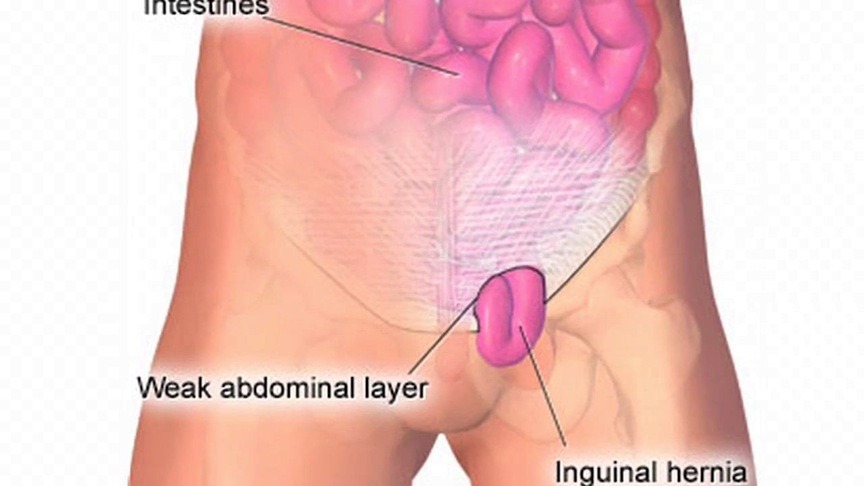 Some people who have undergone bariatric surgery can be at higher risks for hernias, which are defects, obstructions or holes in the stomach or groin lining. Obesity is a major risk factor for a wound hernia, which is a bulge in the wound after surgery.
Some people who have undergone bariatric surgery can be at higher risks for hernias, which are defects, obstructions or holes in the stomach or groin lining. Obesity is a major risk factor for a wound hernia, which is a bulge in the wound after surgery.
Should they occur, most of the time, hernia surgery is necessary. But like all operations, the sooner you seek treatment, the faster your pain can be resolved and not become more serious and difficult to treat.
Keep in mind, the risk is greater for patients who have had open surgery versus laparoscopic surgery. Internal hernias can occur at any time, even years after bariatric surgery.
The most common hernia repair operations I perform for bariatric patients specifically are hiatal hernias, ventral hernias, umbilical hernias, and internal hernias.
Causes
Hernias are the result of a combination of fascical weakness and strain. A hernia can develop quickly or occur over a long period of time.
- Muscle weakness
- Chronic constipation to the point that you strain when having a bowel movement
- Heavy weight lifting
- Weight gain
- Chronic and persistent sneezing and/or coughing
- Being pregnant, which puts pressure on your abdomen
>>Laparoscopic Surgery Can be the Best Solution to Treatment-Resistant Hiatal Hernias
Symptoms
Stomach Pain
Pain is the most common complaint by someone with a hernia. The pain can be burning, tearing, sharp, dull and/or pulling pain. Stomach pain can be felt all over the abdominal cavity but is most commonly experienced in the middle of the belly.
If the symptoms of the abdominal pain are not treated, the pain may increase in severity and expand into other areas of the body.
External Bulge
Incisional hernias can cause a sac membrane to protrude outside of the surgical healing incision. The sac may contain abdominal contents or organs. Due to increased pressure in your abdomen, activities such as lifting, straining or coughing may cause the bulge to enlarge. Yes, it will get larger unless you seek treatment.
Constipation
When the intestines become involved in a hernia, bowel movements become very challenging. Symptoms include hard stools, difficulty passing stools, straining, bloody stools, bloating and abdominal discomfort.
Nausea and Vomiting
For RNY gastric bypass patients, the small intestine is most at risk for hernia strangulation which occurs when a hernia cuts off blood flow to the intestine. If a small bowel obstruction occurs, you will not be able to produce a bowel movement and cause nausea, vomiting and lack of appetite. If the intestines are only partially blocked, you may experience nausea without vomiting.
Abdominal Inflammation
Abdominal inflammation is typically one of the last symptoms to emerge. You will have an elevated white blood cell count and irritation of the lining of your abdomen. Abdominal inflammation is most commonly a result of cutting off blood supply to part of the intestines.
Ultimately, this results in the tissue rupture releasing contents into the abdominal cavity.
>>Don’t Let Groin Hernias Bring You Down
Getting the right hernia diagnosis
Most bariatric surgery patients will not suffer from hernias. With that said, don’t ignore the symptoms we’ve outlined. Once a hernia develops, it will not go away without medical treatment. When left untreated, they often enlarge over time, putting more pressure on surrounding tissues and increasing the risk of more serious medical complications.
If you think you may have a hernia, please give us a call and we will promptly schedule an appointment for you to come in. Hernias can usually be diagnosed based on a physical exam.
If a hernia repair is necessary, rest assured you will be in good hands with board-certified, fellowship-trained laparoscopic and bariatric surgeon, Seun Sowemimo, MD.
Thankfully, we are living in an age where state-of-the-art surgical techniques abound and offer patients less risk, smaller incisions, less post-op pain and a significantly faster recovery.
Have any questions or concerns? Post a comment below. We’d love to hear from you!
About Dr. Seun Sowemimo, MD, FACS
Dr. Seun is a top NJ bariatric surgeon and the medical director at Prime Surgicare, with offices in Freehold serving Monmouth and Ocean counties. He is board-certified, Columbia and Yale University fellowship-trained in advanced laparoscopic, bariatric and general surgery.
To learn more, visit his YouTube channel or call Prime Surgicare at (732)-982-2002.
